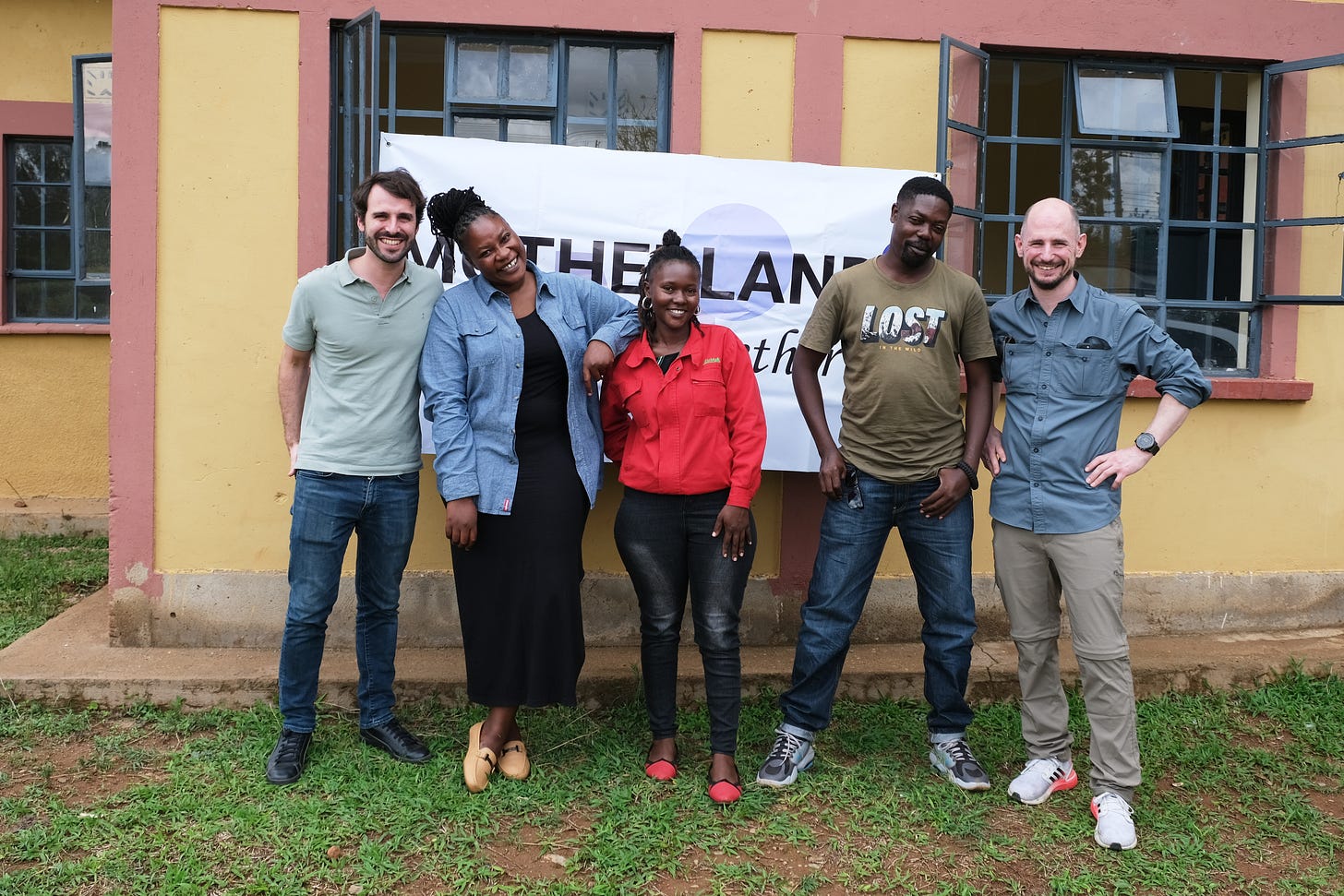MOTHERLAND Siaya team in full swing
Update and Sebastian's Kenya visit
After three years of persistent development, the concept of MOTHERLAND finally came to fruition with our first team in Siaya County, Kenya. My first personal visit to our team was a trip full of insights, learning and gratitude to our team and everyone who supports our journey of MOTHERLAND.
The first stop was Nairobi: Having the exciting opportunity to meet with 50 African agri-tech startups and investors at the SAIStival hosted by GIZ in Nairobi. The positive feedback from entrepreneurs across Africa validated the idea of MOTHERLAND, which aims to address the challenges of market-making for African startups in rural communities.
Imagine starting a European startup without any payment, finance, logistics, supply, market intelligence, or customer access infrastructure. That's the reality for many African startups operating in rural communities. MOTHERLAND aims to solve that by bringing an array of complementary startup solutions to a rural community with the help of local implementation teams. The goal is to set up the required digital service infrastructure to enable startups to thrive in rural communities.
The overwhelming feedback from the SAIStival conference was the interest in starting MOTHERLAND Hubs in other African countries, like Nigeria, Sierra Leone, Namibia, and Tanzania. MOTHERLAND could become the independent hub to orchestrate different complementary startups. Startups could ally to start a MOTHERLAND Hub in selected communities in their home markets. The regional MOTHERLAND Hub would become the independent orchestrator of such an alliance.
My visit to Siaya was the main highlight of the journey. Working with the team to analyze and select the first value chain was essential to moving forward with a clear focus. After a thorough analysis and discussion based on field research, together with the team, we decided to focus on the sweet potato value chain for the pilot. The growing season ends in June, allowing them to create the intended value in the post-harvest value chain. Additionally, the current post-harvest losses are substantial and could become an economic game changer for smallholder farmers if solved. Currently, farmers lose 50% of their harvest due to volatile offtaking and 50% in value due to poor prices paid by middlemen.
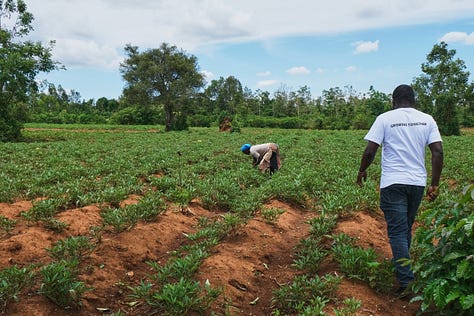
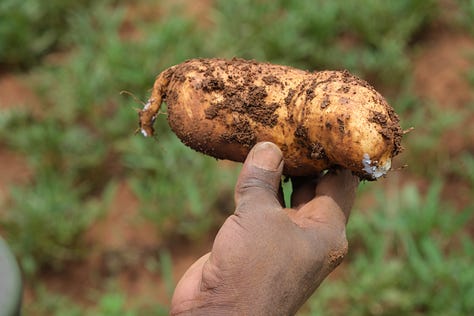
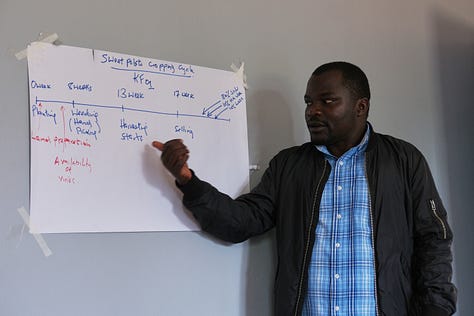
The team also had a crucial presentation and inquiry of MOTHERLAND to the County Agriculture Sector Steering Committee (CASSCOM), including the Minister of Agriculture of Siaya County. The presentation was met with tough questions – oh boy, we got grilled – but the team's dedication, insights, and persistence were enough to receive a clear go-ahead and commitment to supporting MOTHERLAND.
Visiting a farmer group and conversing with them was an eye-opening experience. I learned first-hand about the challenges and the solutions already in place or in the making. The farmer we visited already practices organic regenerative techniques that create compost, compost tea, and organic pesticides. Additionally, they use agroforestry and cover crops instead of mechanical ploughing. By doing so, the fertility of the soil thrives, and resilience against drought is better than neighbouring farmers. However, growing challenges caused by drought are imminent.
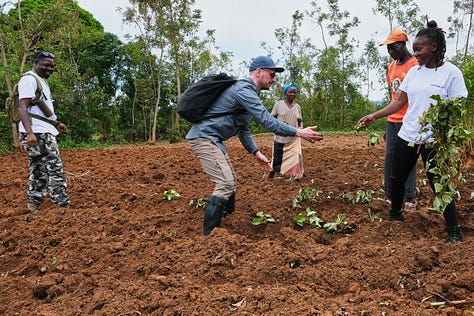
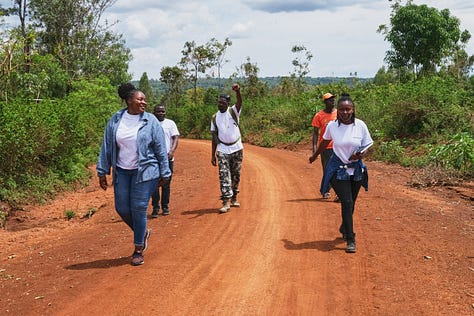
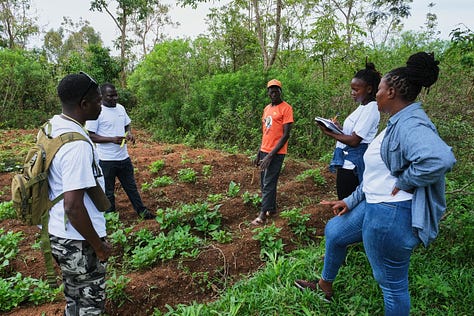
An idea occurred during the community visit to start a "little" regenerative agriculture school for the kids and youngsters of the community. Teaching and experiencing the opportunities to work with nature, e.g. how to create compost, why biodiversity and trees matter to soil health, fertility, and resilience against droughts. Engaging with the kids in a way that shows that farming is cool and essential for a good and flourishing live for them and their families. I cannot wait to see the first "little school" taking place.
It is incredible to receive so much support for the concept of MOTHERLAND on the ground due to the excellent work of the team and the many stakeholders who will be vital in driving the development of MOTHERLAND beyond the single pilot they are running now. The founder acknowledges the supporters of the project, starting with Philipp Tettenborn and the team of the whole GIZ SAIS program, Patrick Knodel of the Knodel Foundation, all members of the CASSCOM, and all the countless people who give feedback and make introductions needed to grow the network of MOTHERLAND supporters and ambassadors.
In conclusion, the Team of MOTHERLAND is on their way to solving the challenges of market-making for African startups by simultaneously creating better livelihoods for rural communities. The sweet potato value chain for the pilot has the potential to prove the economic impact on smallholder farmers very soon with hard numbers. The team received support from the CASSCOM.
Next, we will present the startups we are collaborating with within the pilot! So stay tuned or contact me, Sebastian Fittko, to learn more about MOTHERLAND and become a supporter or ambassador of MOTHERLAND.


